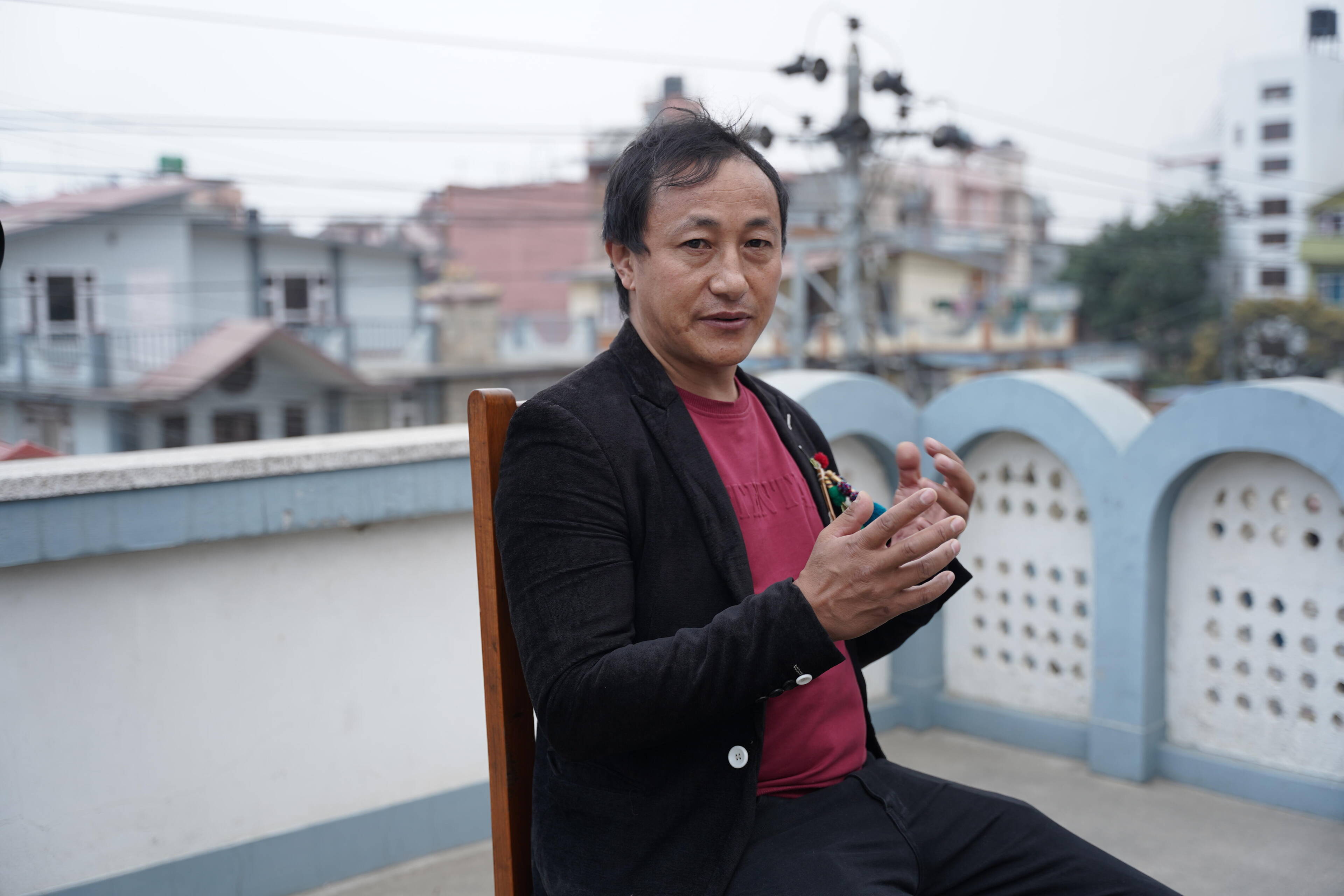
Parenting in the Age of the Internet in Nepal


In today’s Nepal, the digital world is woven into daily life. From YouTube Kids to online classrooms, banking apps to bedtime cartoons, the internet offers incredible benefits—but also introduces new, invisible dangers. For parents, this creates an urgent, complex challenge: How do we keep our children safe online while letting them grow, explore, and learn?
“The government can block harmful sites and enforce age restrictions. But we parents have the biggest role. We must listen more to our children—at least 70% of the time.”
- Parent from Lalitpur
Community initiatives like Red Ant Mothers and Fathers Groups are proving powerful. These grassroots collectives are helping parents share strategies, attend workshops, and even educate others. Some have begun partnering with schools, NGOs, and local police to make children feel safer and more supported.
The Heart of It All: Connection, Not Perfection
If there’s one thread that ties all these stories together, it’s this: children thrive when parents stay connected—digitally and emotionally.
“Our children are not just ours. They are all of our shared flowers. It is our responsibility to let them bloom safely in this shared garden.”
- Red Ant Mother
“We talk about what to watch and not watch according to age. If something happens online, they must not hesitate to share with us. I treat them like my best friends.”
- Social worker and mother
This form of proactive parenting isn't just about protection—it’s about empowering children to protect themselves. And many parents believe schools should play a stronger role:
“Include internet safety and online sexual exploitation in the curriculum—just like we teach good touch and bad touch.”
- Red Ant Mothers Group Participant
The Role of the Government and Community
While parents accept their responsibility, they also call for action from others. Many believe Internet Service Providers and government agencies should help regulate unsafe content and create child-friendly online environments.

“We should stop scolding children when they make mistakes online. Instead, try to understand why it happened. Spend time with them, talk to them, listen.” - Red Ant Fathers Group Member
“I behave like a friend. I sometimes check their phones without them noticing, but also talk to them. I’ve told them not to talk to strangers online.”
- Father of three
Instead of banning the internet outright, many Nepali parents are introducing time limits, site filters, and device sharing rules. More importantly, they’re focusing on building trust. This approach, echoed by members of the Red Ant Mothers’ and Fathers’ Groups, encourages children to speak up when something goes wrong—online or offline.
From Fear to Empowerment: Teaching Digital Safety Early
Some parents focus on technical strategies—installing parental controls or locking unsafe sites. Others focus on early education, introducing age-appropriate lessons on privacy, stranger danger, and safe screen habits.
The Internet Is Here to Stay - So Is Our Concern
Across homes in Kathmandu, Lalitpur, and beyond, parents agree: the internet is essential. Children use it for schoolwork, language learning, cartoons, music, and even creative projects like cooking videos. But with this access comes worry.
“I used to be scared… they might get associated with bad people online. I didn’t even know how to use Facebook then, but I asked younger friends to add my children so I could monitor indirectly.”
- Mother that is a teacher
Some parents have seen first hand how harmful the digital world can be. One mother shared how her daughter faced emotional distress after receiving obscene messages online. That experience motivated her to become a community educator on cyber safety.
Watching, Guiding, and Talking - Not Just Controlling
The traditional model of strict parenting doesn’t translate well in the digital age. Today’s caregivers are shifting toward open conversations, curiosity, and shared decision-making.

Scroll for the story
Parenting in the Age of the Internet in Nepal


“The government can block harmful sites and enforce age restrictions. But we parents have the biggest role. We must listen more to our children—at least 70% of the time.”
- Parent from Lalitpur
Community initiatives like Red Ant Mothers and Fathers Groups are proving powerful. These grassroots collectives are helping parents share strategies, attend workshops, and even educate others. Some have begun partnering with schools, NGOs, and local police to make children feel safer and more supported.
The Heart of It All: Connection, Not Perfection
If there’s one thread that ties all these stories together, it’s this: children thrive when parents stay connected—digitally and emotionally.
“Our children are not just ours. They are all of our shared flowers. It is our responsibility to let them bloom safely in this shared garden.”
- Red Ant Mother
“We talk about what to watch and not watch according to age. If something happens online, they must not hesitate to share with us. I treat them like my best friends.”
- Social worker and mother
This form of proactive parenting isn't just about protection—it’s about empowering children to protect themselves. And many parents believe schools should play a stronger role:
“Include internet safety and online sexual exploitation in the curriculum—just like we teach good touch and bad touch.”
- Red Ant Mothers Group Participant
The Role of the Government and Community
While parents accept their responsibility, they also call for action from others. Many believe Internet Service Providers and government agencies should help regulate unsafe content and create child-friendly online environments.
“I behave like a friend. I sometimes check their phones without them noticing, but also talk to them. I’ve told them not to talk to strangers online.”
- Father of three
Instead of banning the internet outright, many Nepali parents are introducing time limits, site filters, and device sharing rules. More importantly, they’re focusing on building trust. This approach, echoed by members of the Red Ant Mothers’ and Fathers’ Groups, encourages children to speak up when something goes wrong—online or offline.
From Fear to Empowerment: Teaching Digital Safety Early
Some parents focus on technical strategies—installing parental controls or locking unsafe sites. Others focus on early education, introducing age-appropriate lessons on privacy, stranger danger, and safe screen habits.

The Internet Is Here to Stay - So Is Our Concern
Across homes in Kathmandu, Lalitpur, and beyond, parents agree: the internet is essential. Children use it for schoolwork, language learning, cartoons, music, and even creative projects like cooking videos. But with this access comes worry.
“I used to be scared… they might get associated with bad people online. I didn’t even know how to use Facebook then, but I asked younger friends to add my children so I could monitor indirectly.”
- Mother that is a teacher
Some parents have seen first hand how harmful the digital world can be. One mother shared how her daughter faced emotional distress after receiving obscene messages online. That experience motivated her to become a community educator on cyber safety.
Watching, Guiding, and Talking - Not Just Controlling
The traditional model of strict parenting doesn’t translate well in the digital age. Today’s caregivers are shifting toward open conversations, curiosity, and shared decision-making.
“We should stop scolding children when they make mistakes online. Instead, try to understand why it happened. Spend time with them, talk to them, listen.” - Red Ant Fathers Group Member
In today’s Nepal, the digital world is woven into daily life. From YouTube Kids to online classrooms, banking apps to bedtime cartoons, the internet offers incredible benefits—but also introduces new, invisible dangers. For parents, this creates an urgent, complex challenge: How do we keep our children safe online while letting them grow, explore, and learn?